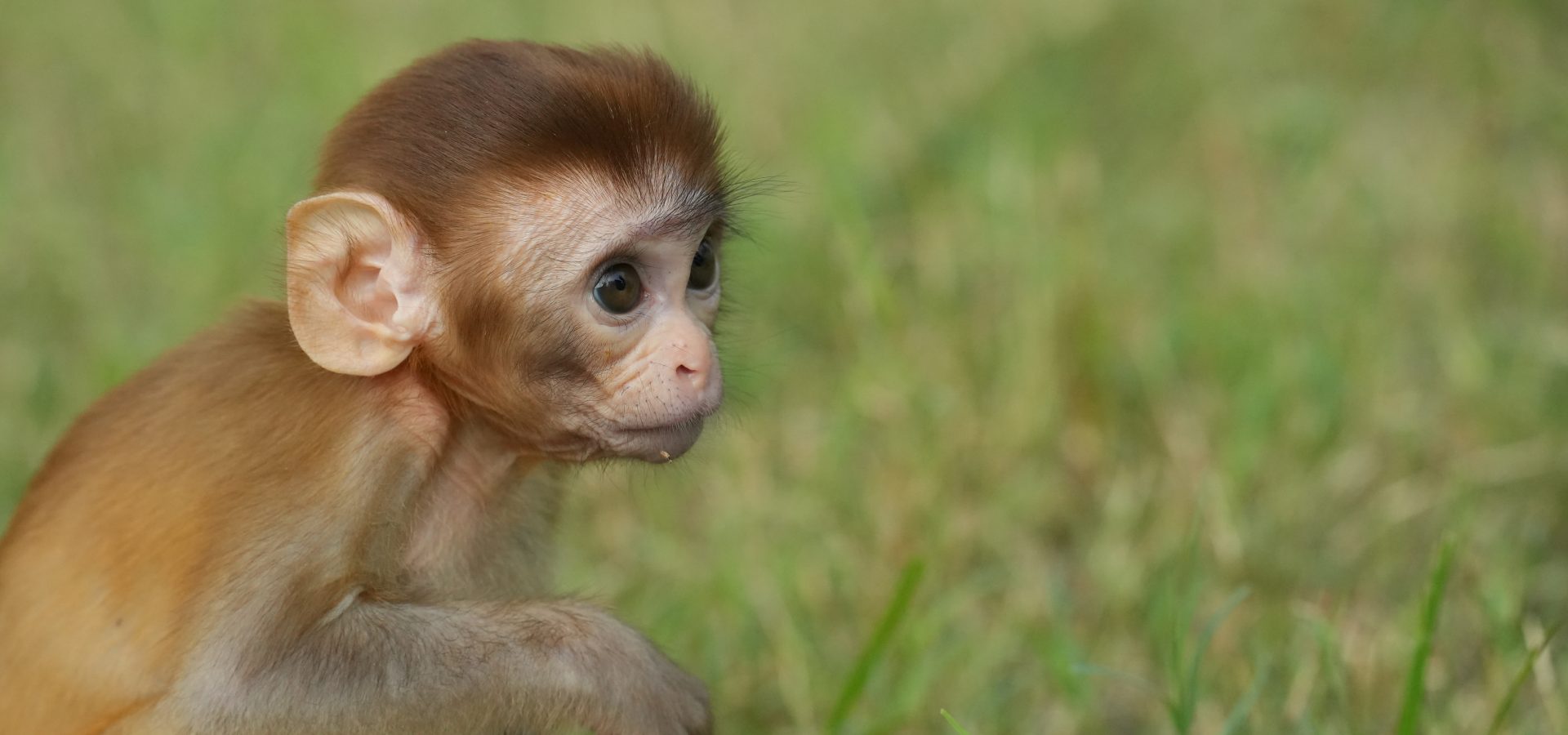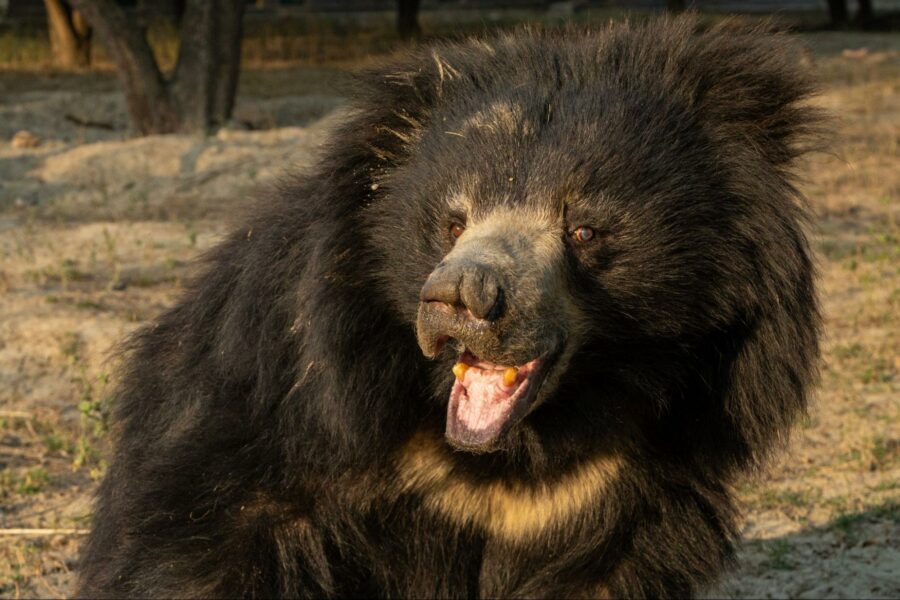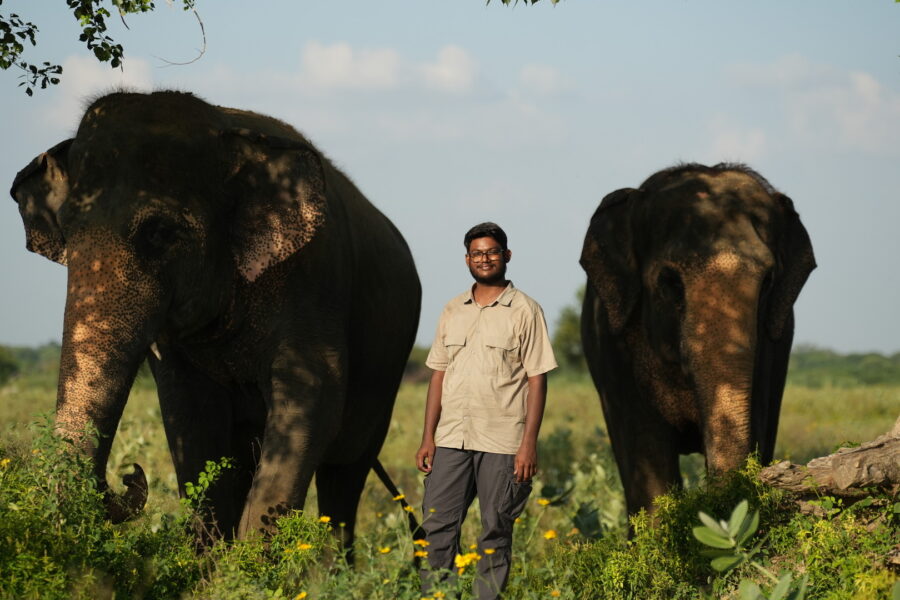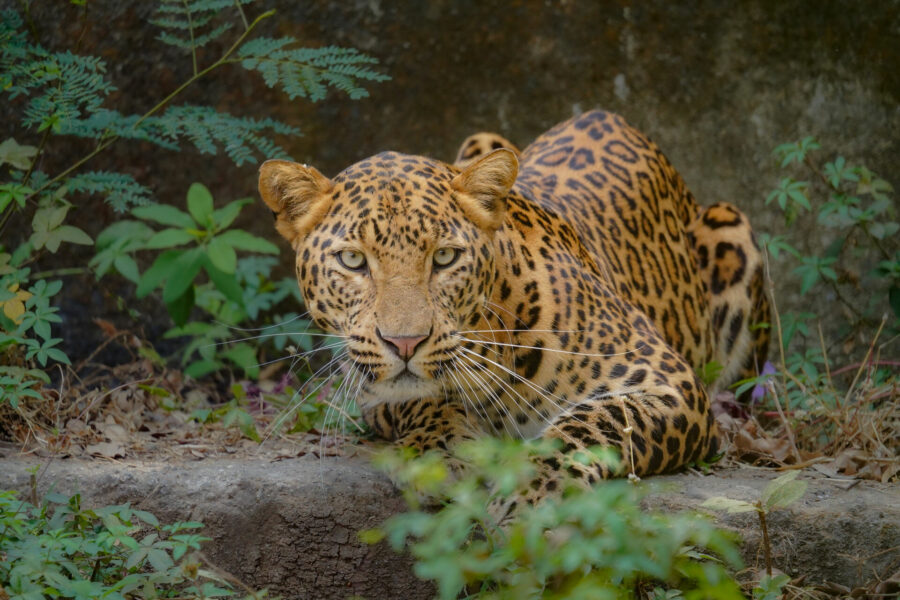Rapid urban expansion and habitat fragmentation has threatened the existence of rhesus macaques. As a primarily arboreal animal, the tree homes of rhesus macaques have been replaced by the concrete jungles. As they are forced to traverse urban areas in search of food, they encounter busy roads and electrical infrastructure. Tragically, road accidents and electrocutions are common causes of injury and mortality among these primates. The threats to rhesus macaques do not end here — they are perceived as pests, which puts them at a risk of stoning, trapping, and shooting.
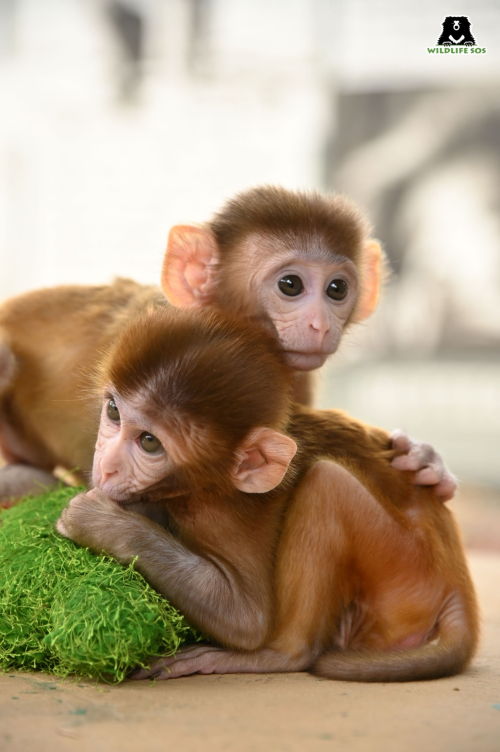
Recently, Wildlife SOS rescued Abu, a 15-day-old male baby monkey and Zoey, a 20-day-old female baby macaque, whose mothers had passed away due to electrocution. The baby monkeys, left stranded, were rescued by Wildlife SOS from Agra and are now under the care of the NGO’s animal care unit.
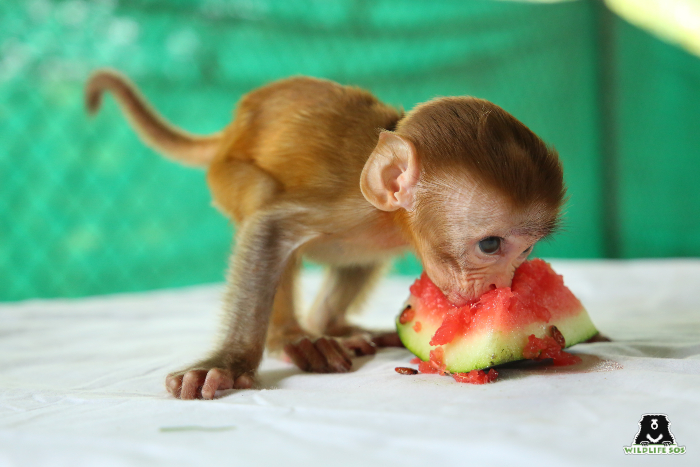
Despite coming from two different places, the infants share a similar history. Their coos echoe the universal need for companionship which requires care that inculcates trust. Recognising the loss of kinship the babies felt, Wildlife SOS made the decision of introducing them to each other. Their reunion was a deeply moving spectacle. Abu and Zoey ran towards each other forming an instant bond, as if they had known each other in a past life. From that moment on, the duo has been inseparable.
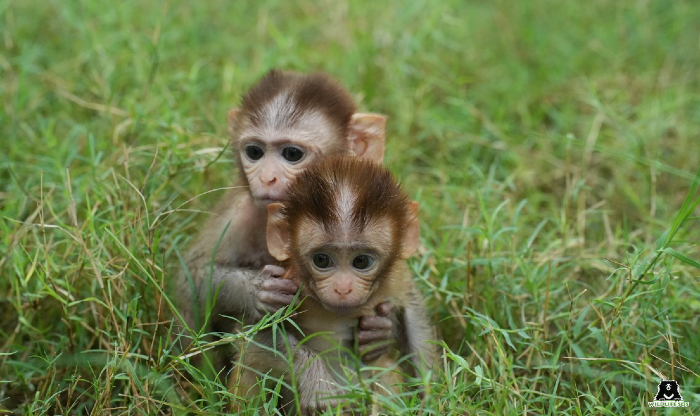
A key element in their recovery, plush toys have been provided to the baby monkeys as a source of comfort. This simple object isn’t just a plaything; it is an anchor, a source of security for Abu and Zoey. Abu, in particular, has clung to his stuffed toy for comfort, a reminder that not all warmth and protection has been lost. The familiar face of a caregiver spending days and nights in the care of Abu and Zoey, adds another layer of trust, like a constant presence in a world that once seemed frightening.
Abu’s journey to recovery includes his newfound love for watermelons, a fruit that brings him joy and nourishment. Zoey, on the other hand, displays an affinity for fresh bananas. With utmost precision and glee, she opens the bananas, and savours each bite of the fruit. The caregivers, witnessing these simple pleasures, know that they are witnessing the gradual healing of Abu and Zoey.
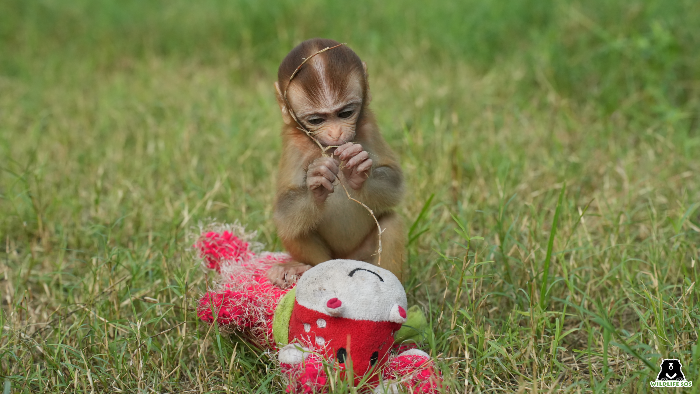
Over time the babies have gradually eased into their new life which is now full of compassion and protection. The transformation witnessed in them is nothing short of a metamorphosis. Evident in their body language, Abu and Zoey revel in their natural instincts. Boisterous antics, playing and running through the fields is their joyful routine, signaling a deep bond of friendship.
The bleak past of Abu and Zoey is the everyday reality of India’s urban wildlife. Wildlife SOS rescues distressed adults and baby monkeys from road accidents, electrocutions, and harmful encounters with humans. Infant monkeys require holistic care because much like their human counterparts, these babies experience profound trauma of losing their mothers.
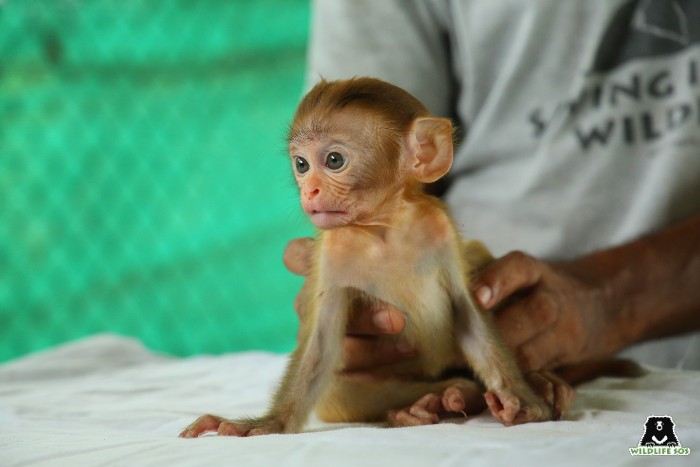
Scientific research has shown that rhesus macaques possess complex cognitive abilities, making them remarkably similar to humans in their emotions and behaviour. As macaques form complex social groups, their social structures have a lot of similarities with human societies. They form hierarchies, with dominant and subordinate monkeys. A larger group of monkeys, which is typically called a troop, also includes smaller units of a male, several females, and baby monkeys known as harems. Monkeys are likely to fight alongside a friend to protect themselves against their enemy. They groom and take care of each other as a sign of affection. Monkeys also have an emotional response to death, especially the mothers, who are known to carry the lifeless body of their infants for several days after the baby monkey’s demise.
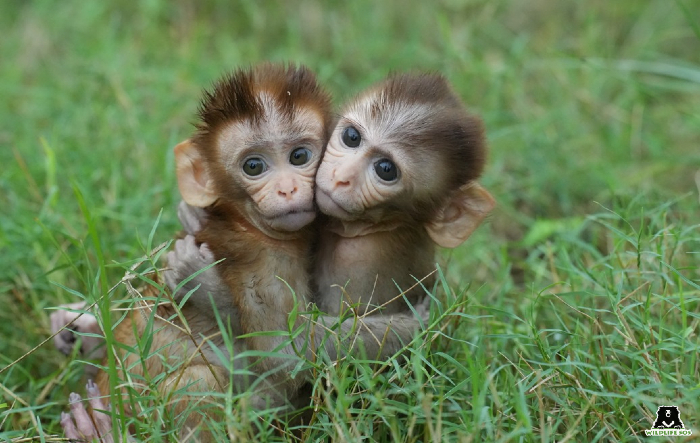
According to a research paper published in the National Library of Medicine, infant monkeys display profound sadness after being separated from their mother. The patterns of behaviour include the babies cooing for their mothers’ presence while slouching. The infants also showed signs of emotional distress with any kind of external occurrence. For example, the time when the baby monkey would want to sleep and rest, the crying and the need for a mother increases significantly. The pattern of behaviour then may shift towards agitation, with the baby eventually shutting off from its natural surroundings and constricting their activity only with themselves.
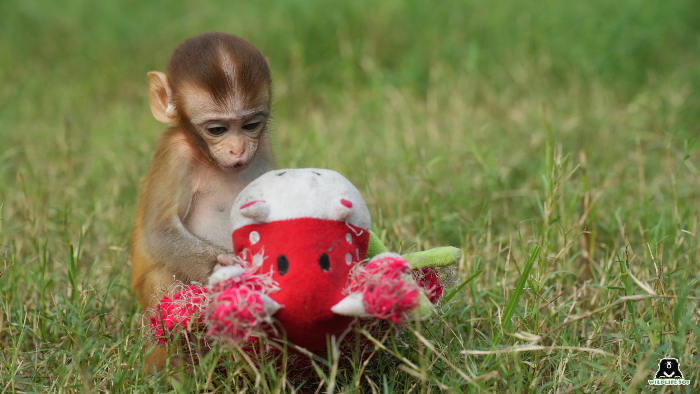
The same study also highlights the power of substitution, an entity that provides comfort and reassurance to the lost, abandoned or orphaned baby monkey. When baby monkeys are provided with care from another family member, it can reverse the overt behavioural disturbance that an infant displays after getting separated from their mother.
Recognising the significance of social interaction and the mother-infant bond, the Wildlife SOS team ensures that rescued baby monkeys receive not only physical, but also psychological support in their care. However, the true magic lies in the power of friendship.
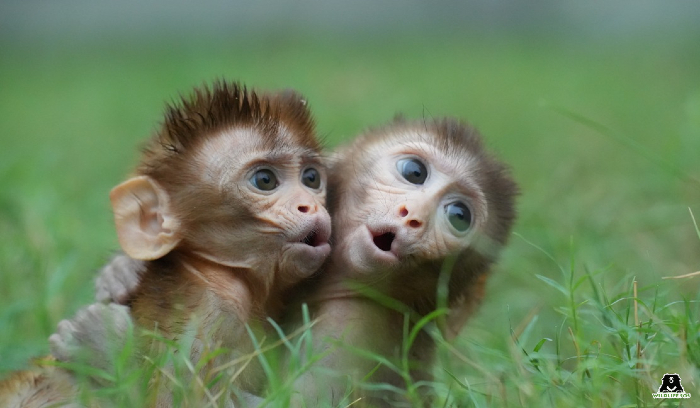
As mentioned earlier, sociability in the wild serves as a defence mechanism. It also ensures better access to food and other vital resources. Baby monkeys therefore form these connections to not only find safety, but to also develop essential survival skills. Strong bonds between the naturally social macaques are healthy for their overall well-being, and at Wildlife SOS, this understanding forms the foundation of raising orphaned infants like Abu and Zoey.
With specialised veterinary care, round-the-clock attention, and an unyielding commitment, the team ensures that Abu and Zoey find the love and stability they need to heal from their scarred past. In a space filled with wholehearted compassion, the two are gradually embracing their new lives in each other’s joyful company.
If you wish to contribute towards Abu and Zoey’s upkeep, consider making a donation.

